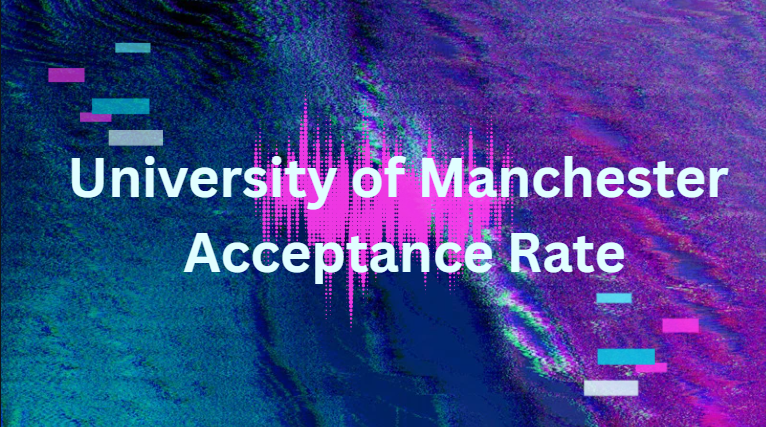The University of Manchester is one of the most popular and respected universities in the United Kingdom. Every year, thousands of students from around the world apply to study here. But how hard is it to get accepted? In this article, we will explore the University of Manchester acceptance rate, what it means, how to improve your chances, and some helpful FAQs for applicants.
1. What Is the University of Manchester Acceptance Rate?
The University of Manchester acceptance rate is around 56% on average. This means that out of every 100 applicants, about 56 are offered admission. However, the rate can vary depending on the course, program level, and applicant background.
For example:
- Highly competitive programs like Medicine, Dentistry, and Law have much lower acceptance rates (around 10–20%).
- Courses in the Arts, Humanities, or Social Sciences tend to have slightly higher acceptance rates.
This shows that while the University of Manchester is selective, it’s not impossible to get in—especially if you prepare well and meet the entry requirements.
2. Why Is the University of Manchester So Popular?
There are several reasons why the University of Manchester attracts so many students:
- 🌍 Global Reputation: It ranks among the top 50 universities in the world.
- 🎓 High Academic Standards: Known for research excellence and innovative teaching.
- 💼 Strong Career Opportunities: Graduates from Manchester are highly valued by employers.
- 🌆 Vibrant City Life: Manchester offers a diverse, exciting, and affordable student lifestyle.
- 🤝 International Community: The university welcomes students from over 160 countries.
Because of this global recognition, competition for admission can be tough—especially for international students.
3. Acceptance Rate for International Students
For international students, the acceptance rate is usually lower than for UK students. It is estimated to be around 35–40%, depending on the course.
This is because:
- There are limited international seats per program.
- Applicants must meet both academic and English language requirements.
- Some courses require extra steps, like interviews or portfolios.
Still, the University of Manchester accepts a large number of international students every year, making up nearly 25% of the total student population.
4. Course-Specific Acceptance Rates
Here’s a quick look at how the acceptance rate differs by course area:
Subject AreaApprox. Acceptance RateMedicine10–12%Law20–30%Engineering40–50%Business & Management50–55%Computer Science35–45%Social Sciences55–60%Humanities & Languages60–65%
If you’re applying for Medicine or Computer Science, expect tougher competition and higher entry grades.
5. Entry Requirements for Admission
To increase your chances of getting accepted, you should meet the minimum entry requirements:
- Undergraduate:
- A-Levels: Usually AAB–AAA (depending on course)
- IB: 35–37 points
- IELTS: Minimum 6.5 overall (no band below 6.0)
- Postgraduate:
- A recognized Bachelor’s degree (usually with a 2:1 or equivalent)
- English proficiency: IELTS 6.5–7.0
- Some courses may require work experience or a research proposal
Always check the specific requirements for your program on the official University of Manchester website.
6. How to Improve Your Chances of Getting Accepted
Here are some simple tips to help your application stand out:
- Start Early: Prepare your documents months before the deadline.
- Meet the Requirements: Make sure you meet or exceed grade and language expectations.
- Write a Strong Personal Statement: Show your passion, motivation, and career goals.
- Get Good References: Choose teachers or professionals who know your academic strengths.
- Apply to the Right Course: Pick a program that matches your academic background.
- Highlight Achievements: Include extracurricular activities, internships, or volunteer work.
A well-prepared application not only meets the university’s standards but also reflects your genuine interest in studying there.
7. Application Deadlines
- Undergraduate (UCAS): January 31 for most courses.
- Postgraduate: Varies by course (usually between December and June).
- Medicine: October 15 (early deadline).
Applying early gives you a better chance, as some programs close once they reach capacity.
8. Life at the University of Manchester
The university is not just about academics—it offers a full student experience. Students enjoy:
- Modern libraries and labs
- Over 400 student clubs and societies
- Affordable accommodation
- Access to sports facilities
- Networking with top global companies
The University of Manchester also has a strong alumni network, with graduates working at global organizations like Google, Microsoft, and BBC.
9. FAQs
Q1: What is the overall acceptance rate for the University of Manchester?
The overall acceptance rate is around 56%, though it varies by course.
Q2: Is it hard to get into the University of Manchester?
It’s competitive, especially for high-demand programs, but not impossible. Meeting the requirements and submitting a strong application increases your chances.
Q3: Does the university offer scholarships?
Yes. There are many merit-based and need-based scholarships for both UK and international students.
Q4: What GPA do I need for admission?
Typically, an equivalent of 3.3–3.7 GPA (for international students) is expected for most programs.
Q5: What IELTS score is required?
You need at least 6.5 overall, with no section below 6.0.
Q6: Can international students work while studying?
Yes, international students can work part-time for up to 20 hours per week during term time.
10. Final Thoughts
The University of Manchester acceptance rate is a dream destination for many students worldwide. With an acceptance rate of around 56%, it offers a fair chance to dedicated and qualified applicants. While competition can be high, strong grades, good preparation, and a well-written application can make all the difference.


